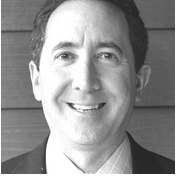Here were some important comments from the FedEx earnings call last night, a stock owned by our clients and myself, a great anecdotal source of information. This quarter spanned December, January and February so fully captured the direct hit of omicron and the recovery from it and also the beginning of the invasion. On the job market: “Labor availability-driven network inefficiencies were significantly less of a factor in the 3rd quarter compared to earlier in the year.” The “higher rates for both purchase transportation and wages” still though cost them an extra $350mm in the quarter y/o/y. With respect to consumer spending: “It’s difficult to forecast this environment, but I’m going to tell you that the big period of growth of e-commerce is now behind us…So we are not counting on huge consumer spend in our numbers.” To the question on Eastern Europe affecting global capacity, notwithstanding the huge uncertainty on how this plays out, “Our operations are close to normal as we speak. And the demand is still very strong. But again, this is a very dynamic situation.” an issue even before the war, “global commercial capacity is still constrained. And as a result, right now, we have not seen an impact despite the high inflationary environment as we talked about some of the risks we see from a consumer perspective. Out of Asia, demand seems pretty high because of the current commercial capacity constraint, but also, as I mentioned, because inventory levels are still low.”
St. Louis Fed president Jim Bullard is the first Fed member to speak post meeting explaining his dissent in a short statement. We know he wanted to hike 50 bps on Wednesday but he said today that he wants a 3% fed funds rate this year. He also said that this week they should have started QT. His main argument was this, “The combination of strong real economic performance and unexpectedly high inflation means that the Committee’s policy rate is currently far too low to prudently manage the US macroeconomic situation. Moreover, US monetary policy has been unwittingly easing further because inflation has risen sharply while the policy rate has remained very low, pushing short term real interest rates lower. The Committee will have to move quickly to address this situation or risk losing credibility on its inflation target.” Bullard cites the Greenspan of experience when he sharply hiked rates in 1994 and 1995. “The results were excellent” he said, but if only the macro backdrop though was still the same I say. Debt levels today are much higher, our dependence on low rates is much greater and asset price valuations are dramatically more expensive.
Bottom line, Bullard wants to go full on cold turkey to the flow of easy money but has a history of having loose lips so I question how much influence he has on the others who tend to be much more methodical with their desire for tightening.
The Bank of Japan will for sure be the last central bank on the planet to tighten monetary policy. Even though CPI might print 2% in April as the mobile fee plunge recycles out of the data, Governor Kuroda today said after their meeting “that in no way signifies there will be a revision of our current monetary policy…There’s absolutely no need for Japan to raise rates just because others are doing it.” Kuroda also endorsed the weaker yen even in the face of very higher energy price imports. And the yen is weakening further in response. So, he’ll be the model technocrat and just keep on doing what hasn’t worked for the past 10 years. The 10 yr JGB yield was unchanged at .21%, near the .25 upper limit of YCC. The 10 yr inflation breakeven was also unchanged at .78%. The 5 yr is at .93%. The Nikkei was higher by .7%. I’m still a bull on Japanese stocks trading at 16x earnings and with a 2% dividend yield.
 Peter is the Chief Investment Officer at Bleakley Advisory Group and is a CNBC contributor. Each day The Boock Report provides summaries and commentary on the macro data and news that matter, with analysis of what it all means and how it fits together.
Peter is the Chief Investment Officer at Bleakley Advisory Group and is a CNBC contributor. Each day The Boock Report provides summaries and commentary on the macro data and news that matter, with analysis of what it all means and how it fits together.